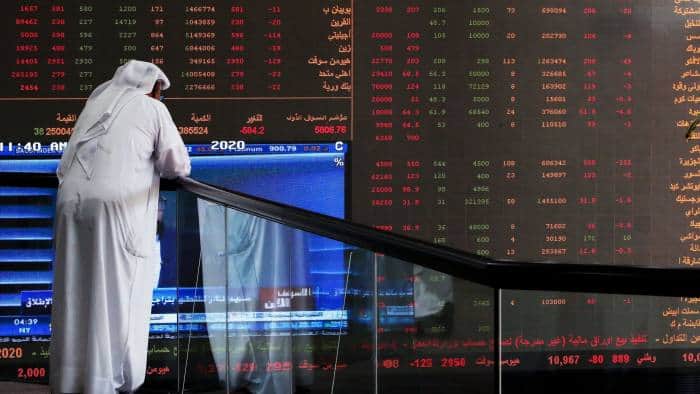The Gulf Stock Exchange rebounded on Thursday, after beginning the week with a sharp decline triggered by Omicron fears. The Abu Dhabi index recorded its most significant weekly loss since March 2020.
The Saudi index gains on Thursday
Al-Rajhi Bank, and Saudi Basic Industries Corporation (SABIC), both fell 1.6 percent and 2.6 percent and contributed to a 1.3 percent decline in the Saudi market’s main index, “TASI,” on December 19 (Sunday).
On the other hand, the Saudi index rebounded 0.1 percent on December 20 boosted by the 4.5 percent rise in the stock of Banque Saudi Fransi.
With Al-Rajhi Bank’s stock up 1.6 percent and Saudi Arabia’s National Bank’s stock up 1 percent, the Saudi index “TASI” closed December 21 up 0.8 percent.
On December 22 Al-Rajhi Bank’s share fell 1.3 percent, while Sahara International Petrochemical Company’s stock fell 3.5 percent. A 9.1 percent increase in the percentage of the Saudi Investment Bank, which recommended a dividend of 0.7 riyals per share for 2021, made it the biggest gainer on the index.
On the contrary, a 0.6 percent increase in the Saudi index was backed by a 0.9 percent rise in Al-Rajhi Bank and the closure of SABIC’s petrochemical share with a 1.4 percent increase in its value on December 23.
Abu Dhabi Market Index suffers worst loss since March 2020
The Abu Dhabi market index started its week down more than 2 percent on December 19 with First Abu Dhabi Bank dropping 3.1 percent. On December 20, the index declined further by 1.1 percent, affected by a 5.3 percent drop in the Emirates Telecommunications Group share and 1.5 percent in the Aldar Properties stock due to renewed fears of the rapidly spreading Omicron.
The Abu Dhabi index went down by 1.2 percent on December 21 hit by a 5 percent drop in the shares of Etisalat and a 0.5 percent decline in the shares of First Abu Dhabi Bank. Also, on December 22, the Abu Dhabi index fell 0.7 percent, with Etisalat’s stake falling by 4.1 percent.
The Abu Dhabi index ended a series of losses that lasted for four sessions, to close up by 0.4 percent on December 23, with the share of the telecom company rising 1.2 percent. The Abu Dhabi index recorded a weekly loss of 4.8 percent, its most enormous loss since March 2020.
Mixed week for Dubai index
Dubai’s main index fell 3.6 percent on December 19 due to a 4.2 percent drop in Emirates NBD Bank and a 4 percent drop in Emaar Properties. The index stabilized on December 20 after gains in financial shares compensated for losses in real estate stocks.
On December 21 the main stock index in Dubai fell 0.1 percent, impacted by the decline in the share of Emirates NBD Bank by 3.2 percent. The index continued its decline on December 22 by 0.8 percent, affected by the decrease in the Emirates NBD Bank stock by 2.6 percent and the Dubai Islamic Bank by 1.3 percent.
On December 23 the Dubai index rose by 0.6 percent, led by a 3.4 percent jump in the Emirates NBD share and a 1.1 percent rise in the Emirates Integrated Telecommunications (Du) stock.








